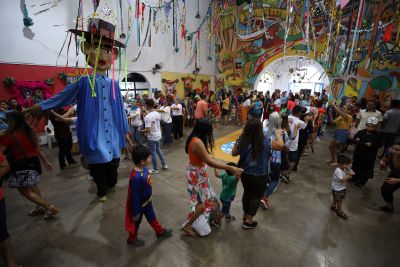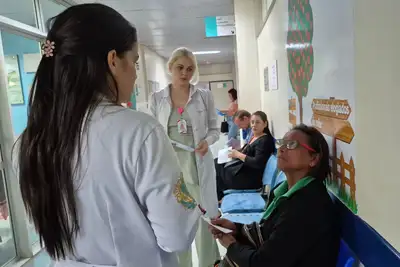The exhibition celebrating the memory of activist Lélia Gonzalez debuts in Belém
The exhibition is open to the public until June 29, at Espaço São José Liberto, in Praça Amazonas, in the Jurunas neighborhood.
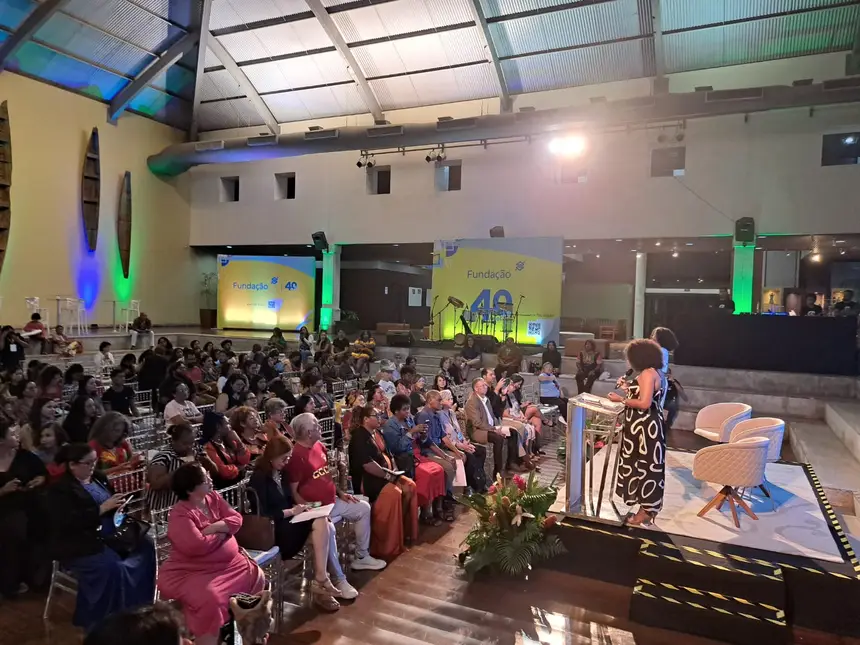
Belém is the seventh Brazilian capital to host the programming of the Lélia Gonzalez Memory Project – Anti-Racist and Anti-Sexist Paths and Reflections. The exhibition concludes in the capital of Pará. In honor of the 90th anniversary of Lélia Gonzalez's birth, the project recovers the life and work of the writer and activist through a series of actions, including the screening of documentaries, lectures, and an exhibition with 18 historical panels that recount her journey and legacy.
The exhibition was officially opened on Tuesday (20), with a seminar that continues until this Wednesday (21). The exhibition remains open to the public until June 29, at Espaço São José Liberto, in Praça Amazonas, in the Jurunas neighborhood.
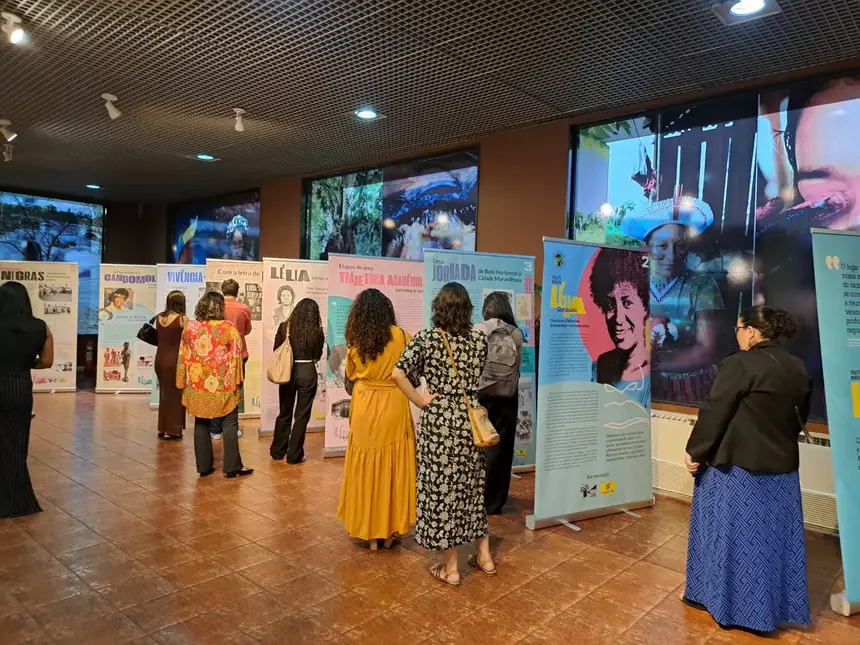
Representing Governor Helder Barbalho, Professor Edilza Fontes, current director of the State Secretariat for Racial Equality and Human Rights (Seirdh), participated in the opening of the exhibition.
Edilza Fontes expressed her honor in participating in the ceremony and highlighted the importance of the Lélia Gonzalez Memory Project in the capital of Pará. "Lélia has a great legacy. She was a very important person for the feminist movement in Brazil, having fought for a change aimed at decentralizing what was a discussion focused on a white middle class, giving visibility to the different experiences of black women."
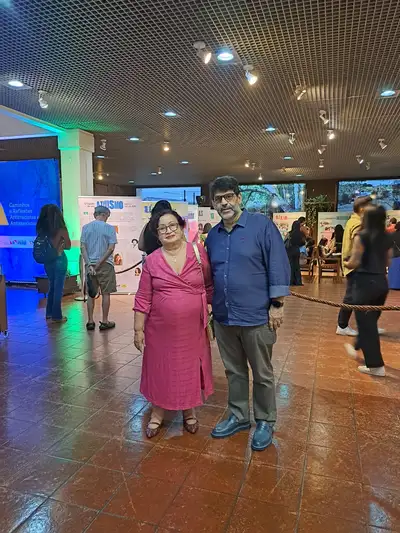
"I believe that Lélia was important for advancing academic issues, building epistemologies, concepts that accounted for this visibility of black women. She did this in academia and in activism, in the Unified Black Movement (MNU), which is so important for our history," added the head of Seirdh.
Present at the opening ceremony were the deputy secretary of the Secretariat of Economic Development, Mining and Energy (Sedeme), Carlos Ledo; the president of the Banco do Brasil Foundation, Kleytton Moraes; the director of the Lélia Gonzalez Memorial and son of the activist, Rubens Rufino; the president of the Friends of Cinema and Culture Association (AACIC), Márcia Mara. Executives from AACIC, Banco do Brasil, and researchers were also present.
Carlos Ledo, deputy secretary of Sedeme, emphasizes that the Government of Pará, through Sedeme and other government secretariats, reaffirms its commitment and support for initiatives that promote diversity, equity, and cultural strengthening.
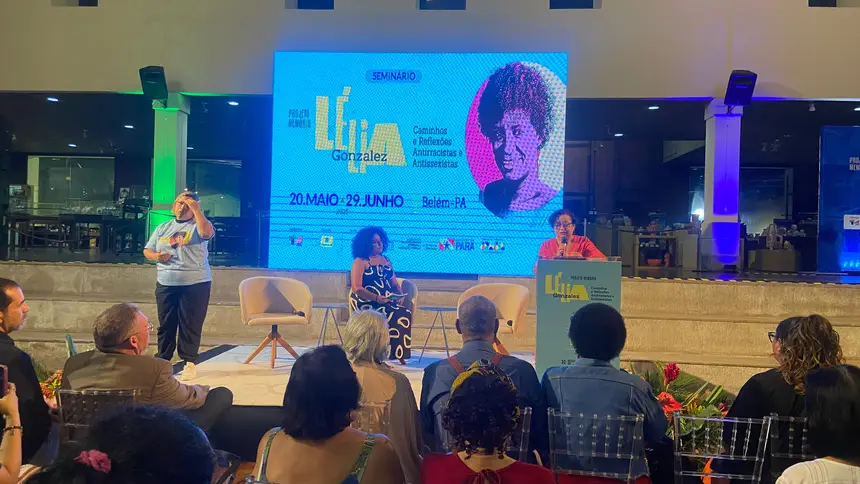
"We know that projects like this are essential to recover historical narratives and build a more inclusive and conscious future. I emphasize that São José Liberto is open to welcome events that portray and celebrate culture, promoting spaces for dialogue, reflection, and strengthening our identity," said Carlos Ledo.
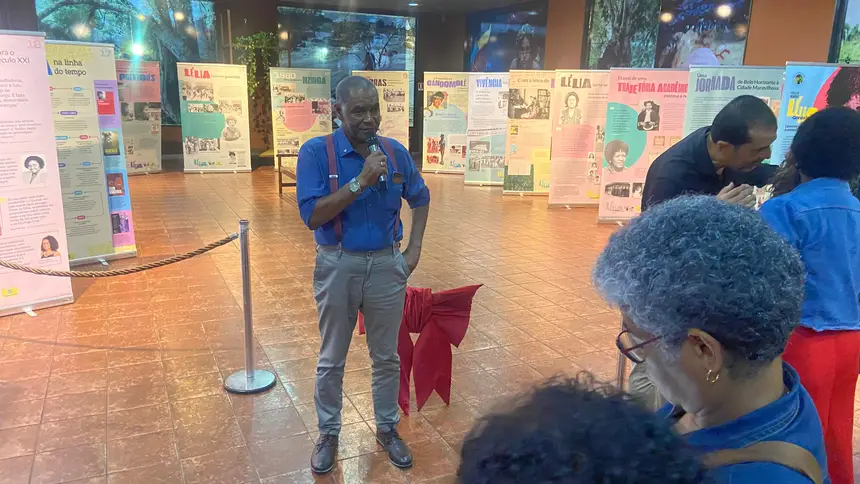
Rubens Rufino, 63, Lélia Gonzalez's son, highlighted the importance of the project in keeping his mother's legacy alive.
"My mother had a journey marked by the fight against racism and sexism. She was tireless in the pursuit of social justice and gave up her personal life to dedicate herself, with courage, to racial and gender equality," he said.
Rufino also commented on the tribute received by the activist: "The University of Brasília awarded Lélia Gonzalez the title of Doctor Honoris Causa post mortem, recognizing her fundamental contribution to Brazilian culture and her work as an intellectual, activist, and teacher," added Lélia Gonzalez's son.
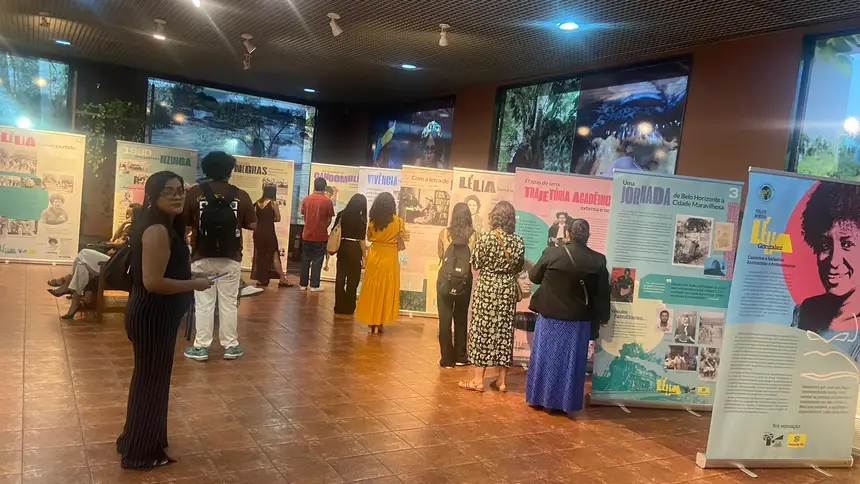
The initiative began in April 2024 and has already passed through Salvador (BA), Belo Horizonte (MG), São Luís (MA), Brasília (DF), Rio de Janeiro (RJ), and Porto Alegre (RS).
The event is organized by the Friends of Cinema and Culture Association, in partnership with the Banco do Brasil Foundation. In Belém, it has the support of the Government of Pará, through the state secretariats of Economic Development, Mining and Energy (Sedeme) and Education (Seduc).
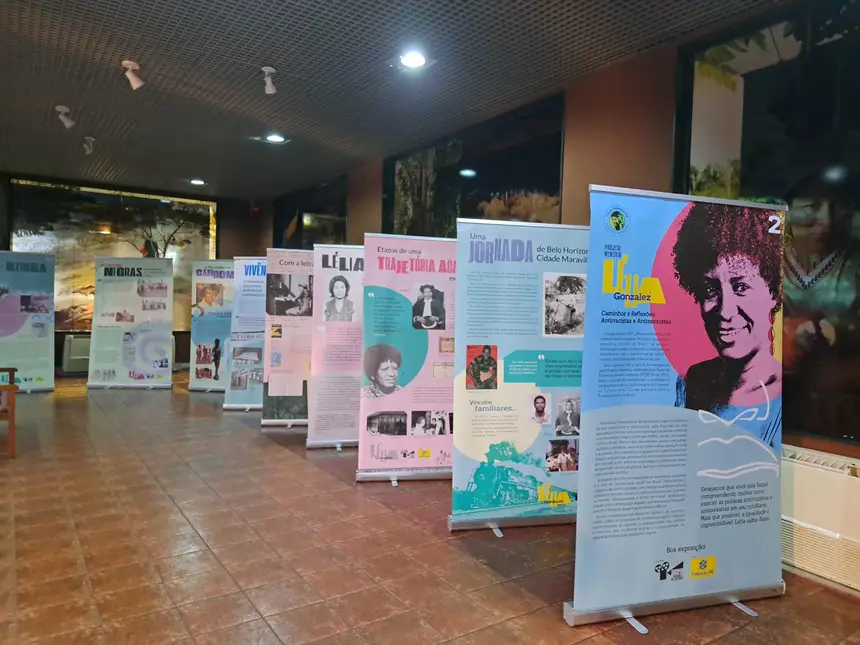
As part of its programming, it offers guided and free school visits, benefiting around two thousand high school students. The initiative expands young people's access to the history and legacy of the activist, promoting education and reflection on racial and gender equality.
Check the schedule Here
Service:
The opening hours of Espaço São José Liberto (ESJL) are Tuesday to Saturday, from 10 am to 6 pm, and on Sundays and holidays, from 10 am to 2 pm.
Text with the collaboration of journalist Juliana Maia / Ascom Seirdh





